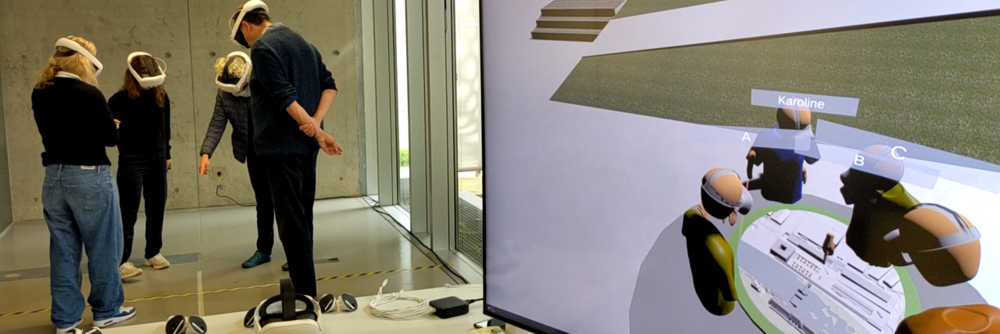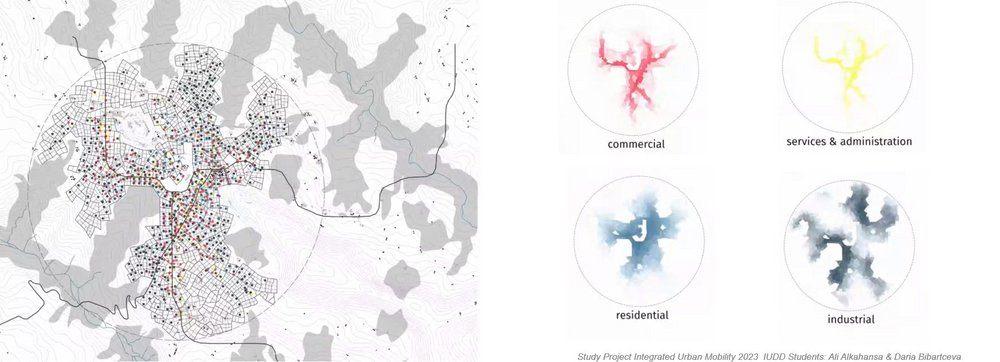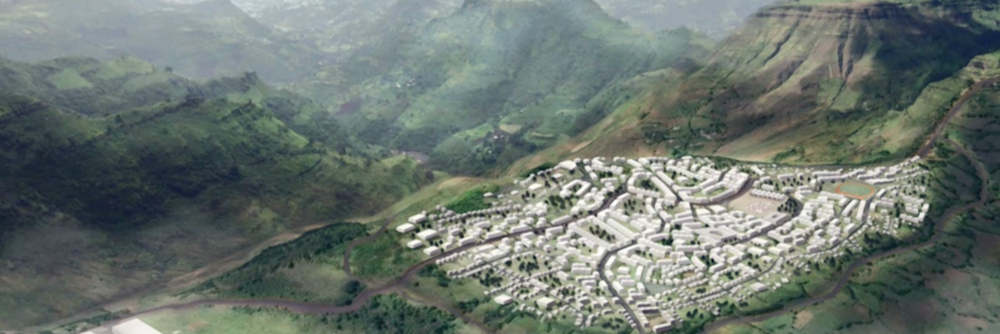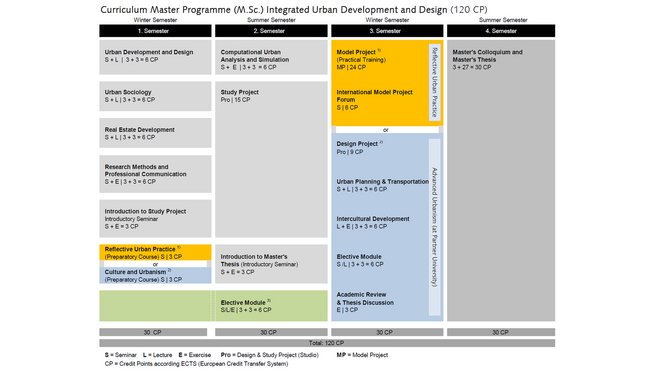Study Programmes
Programme concept and structure
With our international Masters Programmes, going back to 1999, we attract an international league of dedicated students with different cultural backgrounds and multiple perspectives on the "urban". We expect our applicants to be committed to further develop and exchange their knowledge while bringing a strong personal and professional interest in the field of urban development and design in practice and applied research.
With the special notion on system approaches students are trained in using and applying computational urban design tools in support of analysing and simulating urban design scenarios in an interdisciplinary way.
Architects, urban designers, landscape architects, urban planners and adjacent disciplines are important spatial professionals who deal with complex urban systems. It is increasingly important to develop interdisciplinary solutions for more sustainable forms of settlement in co-operation with other specialist disciplines, which enable a holistic approach to supply and transport systems as well as resources such as land, energy, water and food. The implementation of such approaches requires not only analytical knowledge of their interrelationships, but also instruments to ensure early integration in urban development.
The Master's programme "Integrated Urban Development and Design (IUDD)" enables students to learn corresponding solution-oriented strategies and instruments and to apply them in practice. The training programme is strongly project-related, application-oriented and research-based. It is based on the principles of integrated urban development, which is enhanced by innovative, digital planning methods (algorithmic design and analysis models as well as artificial intelligence methods). The degree programme places particular emphasis on learning and applying computer-aided, system-based planning techniques.
Taking holistic, ecological, social and cultural aspects into account, the theoretical fundaments are taught in the 1. semester, while these are deepened in the 2. semester using innovative digital methods for urban analysis and modelling in the Study Projects. Students acquire explorative-experimental as well as research-related and application-orientated skills. In the 3. semester, both approaches are applied in practice (the "Model Projects") or in an academic context (at a partner university, with the double degree "Advanced Urbanism" with CAUP, Tongji-University Shanghai, operating from 2004 and closed in 2022).
Important notice for applications in 2025 (starting studies in October 2025)!
The programme is in process of re-accreditation. The main change of the updated study plan in IUDD is that - next to the existing 12 CP study project in the 2nd semester – we plan to integrate a second 12 CP project in the 1st semester, strengthening the praxis oriented profile of IUDD.
The updated curriculum and regulations will be published on this website as soon as the formal process allows us to do so! Those will be valid for students starting IUDD in October 2025!
Get the newest information on the programme updates by attending one of our three IUDD info sessions or contact the academic advisor of the programme! Application requirements indicated on the Uni-Assist Application Platform are already valid for the 2025 applications!
With the study focus "Reflective Urban Practice", the content learned in the first two semesters is applied (as before) in the third semester as part of a supervised compulsory internship, the so-called international "Model Project" in architecture and urban design or planning offices, research institutions or municipal facilities that have been cooperating with our programme since the year 2000.
Both the international profile of the student group and the study specialisations with the possibility of further international profiling in the third semester are characterised by a close interweaving of content, especially with the research area on digital methods, which enables students to adopt a variety of perspectives.
The programme concludes in the 4. semester with an academic thesis with the title "Master of Science (M.Sc.)“. Watch out for some Master Theses examples here. Graduates are employed in international architecture, planning and engineering offices, research institutions and international organisations and authorities.
Here you can find the current course catalogue as well as the current course schedule.
NEW refined IUDD curriculum from 10/2025 on (t.b.c.)
In the process of the programme's reaccreditation we refined our curriculum. Strengthening the application- and project-oriented profile of IUDD the main change is that the programme now includes two study projects (studios). A second one has been included which is taking place in the first semester. This will be valid for students starting their IUDD studies from October 2025 on.















